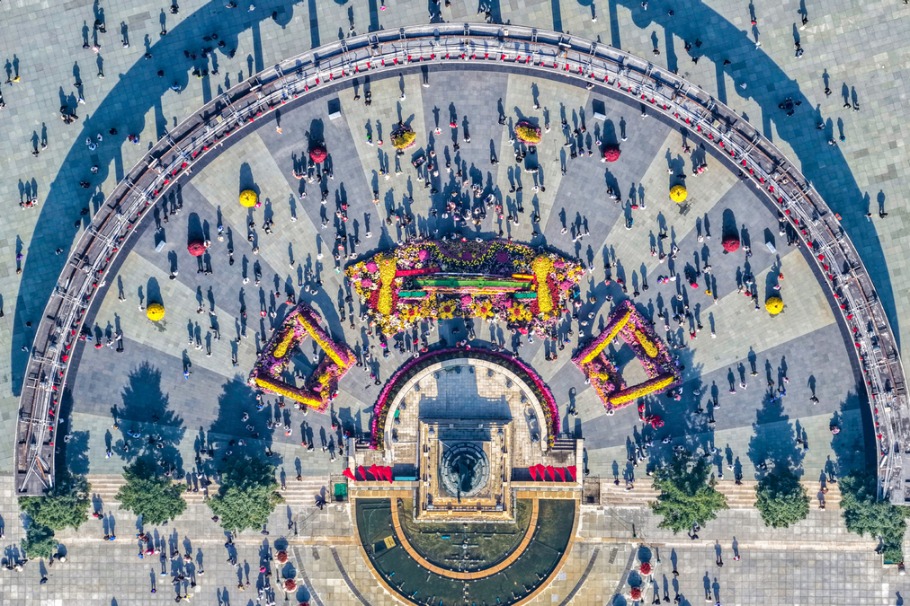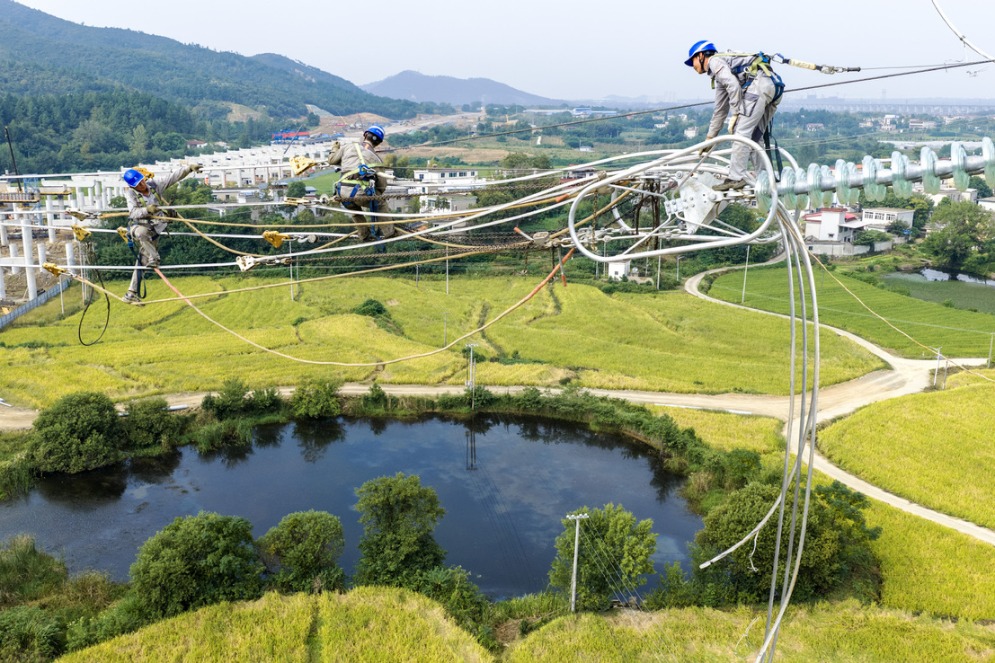'Environmental immigrants' make way for rainforest


HAIKOU-Carrying pots, pans and daily necessities, 35-year-old Fu Yongzheng and his wife arrived at their new home after riding more than three hours on a motorcycle along winding mountain roads.
They will start a new life in a resettlement community, built to house villagers relocated from what will become the Hainan Tropical Rainforest National Park on Hainan island.
"It's a bit hard for me to leave the mountain since I've always lived there, but excitement has overwhelmed my reluctance," said Fu, a resident of Gaofeng village in Nankai, Baisha Li autonomous county.
Fu is one of 498 people from 118 families who have became the first group of "environmental immigrants" to make way for the rainforest national park.
The park, with a total area of 4,400 square kilometers, has vast expanses of rainforest and covers nine cities and counties. Gaofeng is located at its center.
Village head Fu Zhiming said it was impossible to keep living in a core area of the park as human damage to the environment was inevitable. "Environmental relocation, therefore, is the best solution to this problem," he said.
The tropical rainforest is home to many rare and endangered species, including Hainan gibbons. Over the past 20 years, its habitat has increased by about 200,000 hectares thanks to enhanced environmental protection measures and anti-poverty campaigns that have weaned villagers off illegal logging, burning and hunting.
Before being lifted out of poverty in 2017, Gaofeng was one of the most destitute villages in the province. Of its 118 households, 101 were impoverished, and their sole source of income was from rubber trees.
The village's secluded location and poor transportation network contributed to its poverty. Tucked away in the mountains, about 62 km from the nearest town, the hamlet is virtually cut off from the outside world.
Fu Yongzheng recalled the difficulties in accessing healthcare and sending his children to school. One night, one of his children had a high fever, so he had to ride a motorcycle down the mountain to see a doctor. "I rode along the cliff," he said, adding that memories of the harrowing experience scare him to this day.
The provincial government launched the relocation project last year. The first relocation, involving all of Gaofeng, was completed last month. The government plans to relocate 470 households from other core areas next year.
Each family in Gaofeng has been allocated a two-story house of 115 square meters in the resettlement community, with construction funded by the government.
"Besides a living room, there are four rooms, all of which have been decorated. It is much better than the tile-roofed houses on the mountain," Fu Yongzheng said.
The resettlement community also has a service center, a reading room, a basketball court and a performance stage.
The architectural design reflects the ethnic elements of the Li ethnic group. "The villagers have a tradition of making liquor, so the government has built five brewing rooms in the new resettlement," said Li Hongfeng in charge of the community construction.
Liu Wei, Party chief of the county, said: "Moving everyone out is only the first step. We also need to make sure they can live and work well without changing their lifestyles."
The county government of Baisha has built an edible fungus plantation in cooperation with an agricultural company near the community. The plantation not only recruits villagers for employment, but also gives 180,000 yuan ($27,522) in dividends to the village collectives every year. A tea company has been invited to set up a production base near the community, which will also generate jobs.
Wei Enwen, in charge of poverty alleviation in Nankai, said buildings in the former village will be demolished.
"The village site will blend in with nature. Humans and their activities will leave the place, paving the way for wildlife to prosper," he said.
Xinhua
- 5 dead after entering abandoned mine in East China
- Andersson seizes victory in Shanghai F1H2O showdown
- Red alert as Typhoon Matmo makes landfall in South China
- New reception hall aims to transform Guangzhou into international trade hub
- Typhoon Matmo to make landfall on Sunday
- Mid-Autumn Festival event promotes cross-Strait harmony in Fuzhou





































